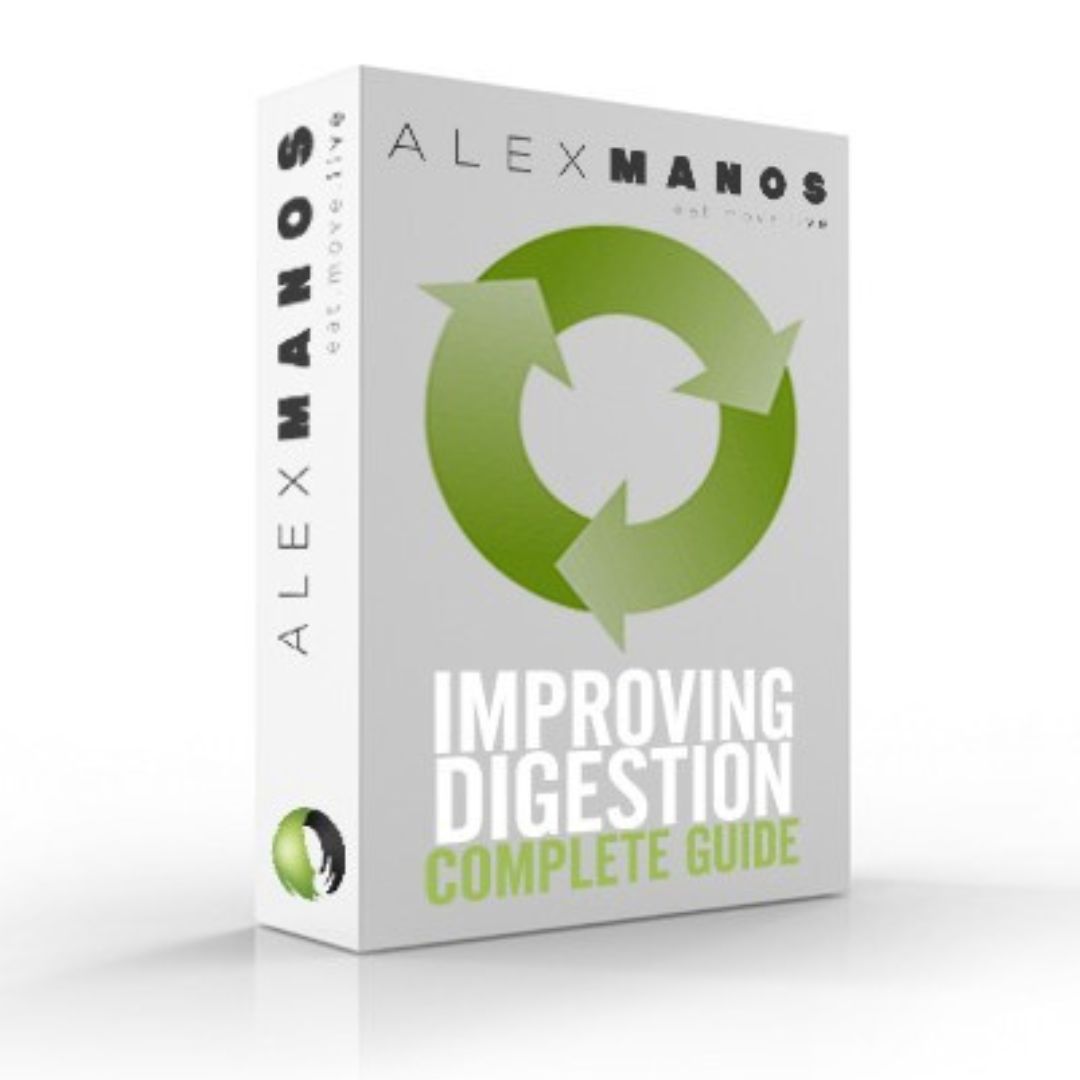Many of us are now very familiar with the role bacteria play in our digestive, and systemic, health, but not as many are likely familiar with the role of archaea. These little guys are responsible for the term methane SIBO, and constipation is a common side effect.
What Are Archaea?
It has been estimated that about 33% of the world’s human population is considered to be methane producers.
Archaea are single-celled microorganisms with a structure similar to bacteria. However, they are evolutionarily distinct from bacteria. Archaea are anaerobes, living in environments low in oxygen (e.g., water, soil), but have recently been described in the human intestine also.
Unlike bacteria, which primarily produce hydrogen, the archaea produce methane gas, and thus are sometimes referred to as ‘methanogens’. Also unlike our bacteria, where we have hundreds of different bacterial species, the human body harbors only a handful of methanogen species.
Interestingly, archaea have been shown to be absent during infancy while omnipresent in school-aged children, suggesting that colonisation may result from environmental exposure during childhood.
In humans, methanogens have been studied in the gastrointestinal tract, mouth, and vagina, and considerable focus has shifted towards elucidating their possible role in the progression of disease in humans (Chaudhary et al., 2018).
What Is Methane SIBO?
Watch my interview with Dr. Jacobi, AKA “The SIBO Doctor”:
Methane SIBO is a term used when elevated levels of methane gas have been found on a hydrogen breath test for small intestine bacterial overgrowth. A more appropriate team is IMO – intestinal methanogen overgrowth. This is due to the fact that the overgrowth may be in the large or small intestine, and, the organisms that produce methane aren’t strictly bacteria but archaea.
The Role Of Methane In Health & Disease
The role of archaea in gut health and disease remains unclear. However, methanogens are associated with periodontal disease, and have been strongly associated with constipation.
Interestingly, elevated levels of methanogens have been found in obesity, but also in individuals who suffer with anorexia.
Convincing evidence is accumulating that links methanogenic populations of the gut to inflammation. Initial studies found that there is a correlation between methane excretion and IBD (Inflammatory Bowel Disease). In UC and CD patients, a mere 10 to 30% were methane producers, compared to 50% in control groups.
However methanogens have also been associated with periodontitis, diverticulitis, anorexia, obesity, and they have also been found in greater levels in elite cyclists compared to amateur cyclists. And most interestingly in this scenario the elite cyclists weren’t constipated.
However it is not that simple as methane has been associated with different symptoms as indicated in this great visual:

Chaudhary, Conway, Schlundt, 2018, Methanogens in humans: potentially beneficial or harmful for health.
Methane SIBO And Constipation
Methane production in the gut is known to be associated with slow gut transit.
Methane Doesn’t Always Cause Constipation
Most of excreted methane in the breath of mammals may come from intestinal archaea production, but a variable amount is possibly linked to non-archaea processes.
The first reason why methane may not always cause constpation is because methane producing organisms are not just found in the intestine. In this paper the authors discuss the ‘methane hot spots’ in the body: the mouth, the sinuses, the small intestine, and the large intestine.

If methane is only coming from the oral or nasal microbiome then we can expect it to not cause slow motility through the gut, hence no constipation.
The second reason why methane doesn’t always cause constipation is really very linked to the first.
Traditionally, methane has been thought to be only produced by methanogenic archaea (methane producing organisms). However, we now know that plants, fungi, and algae can produce methane, and in the presence of oxygen too.
Recently researchers have demonstrated methane formation by Bacillus subtilis (a spore based probiotic) and E. coli, and that this production is triggered by free iron and oxidative stress.
In another paper researchers discussed how our very own cells may have the capacity to produce methane and that methane has anti-inflammatory and anti-oxidant properties.
This really raises questions around the underlying reasons for elevated methane levels in the breath – could it be an adaptive response? And does this explain why we see it frequently elevated on conditions where oxidative stress may be high (such as those with a history of anorexia or obesity).
The current evidence suggest that methane liberation and biological effectiveness are both linked to cellular redox regulation.
We therefore propose that methane might serve as a read-out for stress. For example, monitoring of variations in methane content in human breath has revealed age- and disease-dependent changes in cell metabolism (1)
We may therefore need to consider what is driving that ‘stress’ contributing to elevated methane levels in the breath.
Methane Is Influenced By Your Oral Hygiene
Participants presenting for breath testing who had elevated baseline gases were given a chlorhexidine mouthwash. If a substantial reduction in expired hydrogen or methane occurred after the mouthwash, breath samples were collected before and after a mouthwash at all breath sample collection points for the duration of testing (3).
Administration of a chlorhexidine mouthwash resulted in significantly reduced breath hydrogen in 67% and/or CH4 gas in 93% of those consenting to inclusion. In some cases, this modified the diagnosis (3).
Variations in gas production due to oral hygiene practices has significant impacts on test interpretation and the subsequent diagnosis (3).
This might be why methane SIBO and constipation are not always connected.
Human Cells Produce Methane
Recently it has been proposed that methane might be produced by all living organisms via a mechanism driven by reactive oxygen species that arise through the metabolic activity of cells. Here, we summarise details of this novel reaction pathway and discuss its potential significance for clinical and health sciences. In particular, we highlight the role of oxidative stress in cellular methane formation. As several recent studies also demonstrated the anti-inflammatory potential for exogenous methane-based approaches in mammalians, this article addresses the intriguing question if ROS-driven methane formation has a general physiological role and associated diagnostic potential
All these organisms respond to inducers of oxidative stress by enhanced methane formation.
Our results imply that all living cells probably possess a common mechanism of methane formation that is based on interactions among ROS, iron and methyl donors, opening new perspectives for understanding biochemical methane formation and cycling.
This may explain why methane SIBO and constipation do not always correlate.
What Does A High Methane Breath Test Result Mean?
We first need to establish what a positive methane test is. The North American Consensus criteria state that a result of 10ppm or higher, at any point in the breath test, may be viewed as positive for methane.
Generally people consider elevated test results to indicate an imbalance in these methanogens organisms, and an underlying cause of constipation dominant IBS.
However, not as many people know that the gas, via different levels of research, has been found to have anti-oxidant, anti-inflammatory and antiapoptosis properties.
The question then becomes:
Could elevated methane in breath tests be an adaptive response?
Meaning, could the body have deliberately ‘allowed’ for a bloom in methanogens (the methane producing organisms) to maintain some degree of health, at the expense of constipation? Could constipation be the better of two outcomes?
Methane has several important biological effects that can protect cells and organs from inflammation, oxidant, and apoptosis.
What Causes High Methane Levels?
It is not fully understood what causes higher methane levels but possibilities include:
- High volume endurance training.
- Oxidative stress.
- A history of an eating disorder.
- Malabsorption of food due to poor digestion.
- Chronic constipation for other reasons than high methane levels.
What About High Baseline Methane Levels In a Breath Test?
It is thought this might be caused by imbalances in the oral microbiome, stomach microbiome or be indicative of severe constipation.
Long Term Monitoring Of Breath Methane
Thus, this study clearly shows that humans can change from high to low CH4 emitters and vice versa within relatively short time periods. In the case of low to medium emitters the increase observed in methane mixing ratios, likely resulting from immune reactions and inflammatory processes, might indicate non-microbial methane formation under aerobic conditions. Although detailed reaction pathways are not yet known, aerobic CH4 formation might be related to cellular oxidative-reductive stress reactions.
Bile May Regulate Methane Production
The presence of bile acid, which is lost into the colon from the small intestine, may be an important regulatory factor of CH4 formation. All biles were shown to inhibited headspace methane. Inhibition of methanogenesis was dose dependent, and was abolished by 0.6% cholestyramine (6).
It was concluded that inhibition of methanogens in the beginning of the large intestine by bile acid could significantly reduce the number of methanogens in the colon (6).
What is the difference between hydrogen and methane sibo?
A common question I get asked is what are the difference in hydrogen vs methane sibo symptoms?
Put simply:
- Hydrogen is more often associated with diarrhoea.
- Methane is more often associated with constipation.
Also methane is produced by non-bacterial organisms and thus the correct term is intestinal methanogen overgrowth, IMO for short.
Testing For Methane SIBO And Constipation
Get 10% off your gut health tests at Healthpath using code ‘alexmanos10’.
There are two tests that may be helpful when suffering with digestive complaints, such as constipation.
Firstly, breath testing used to assess for small intestinal bacterial overgrowth, or SIBO for short, (a common cause of Irritable Bowel Syndrome) will look at both hydrogen and methane gases. When methane is elevated, especially throughout the test, it may indicate an overgrowth of archaea in the large intestine. Click here to order a breath test to assess for SIBO.
Secondly, you can assess levels of archaea (methane producing organisms) via stool testing. Click here to order a stool test from Healthpath.
Treating Methane SIBO And Constipation
U.K readers can get 10% off your supplements at Healthpath using code ‘alexmanos10’.
Traditional options include antibiotics such as Rifaximin and neomycin.
However, with methane dominant SIBO herbal treatment with antimicrobials has been found to be effective also. Options include:
Anti-Microbials
- Recommended Products (U.K):
- Recommended Products (U.S.A):
- Oregano oil – this specific oregano oil I have used for over a decade with greatt success.
- Neem,
Probiotics
My first two go to probiotics with clients are Biogaia and Optibac Every Day Max – these both have substantial evidence behind them in improving constipation.
- Recommended Products (U.K): Biogaia and Optibac Every Day Max
- Recommended Products (U.S.A): Biogaia and Clinical GI
Postbiotics
- Recommended Products (U.K): Butyrate – by FAR the best butyrate on the market.
- Recommended Products (U.S.A): Butyrate
Prebiotics
- Recommended Products (U.K): Partially hydrolysed guar gum
- Recommended Products (U.S.A): PHGG
- A specific type of fibre called partially hydrolysed guar gum which supports the growth of butyrate producing bacteria.
Sulphurous Compounds
there is evidence from the 90’s demonstrating that sulphurous compounds may lower methane levels.
It is possible that the methane is in fact not coming from the intestine. Recent research has indicated that our own cells have the capacity to produce methane and that methane in the breath may indicate cellular stress. I am finding that some people respond well to mitochondrial support such as CoQ10 (U.S readers find CoQ10 here). There is an intimate microbiome-mitochondria connection and so this might partly explain why products such as PHGG and butyrate have been helpful for some people.
References:
Methanogens in humans: potentially beneficial or harmful for health, Appl Microbiol Biotechnol. 2018 Apr;102(7):3095-3104
Archaea and the human gut: new beginning of an old storyWorld J Gastroenterol. 2014 Nov 21;20(43):16062-78
Archaea and the human gut: New beginning of an old story, Front Microbiol. 2017; 8: 355
Chaudhary et al., (2018) Methanogens in humans: potentially beneficial or harmful for health
Alex is a certified Functional Medicine Practitioner (IFMCP) and has a MSc in Personalised Nutrition. He is also a breathwork facilitator with a background in personal training and massage therapy. He also runs The Resiliency Program - a 24 week program aimed at building physical, mental, emotional, and spiritual resilience.








